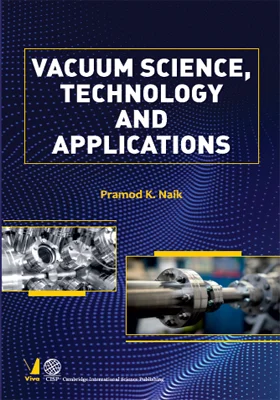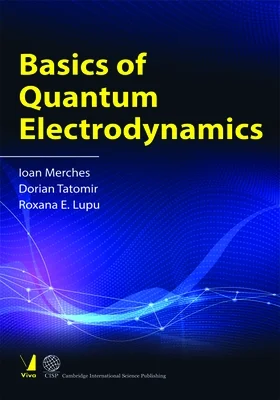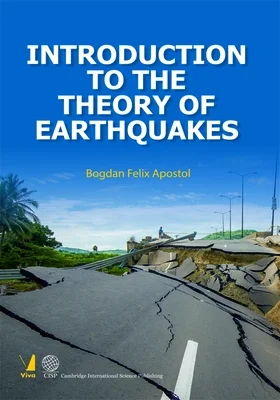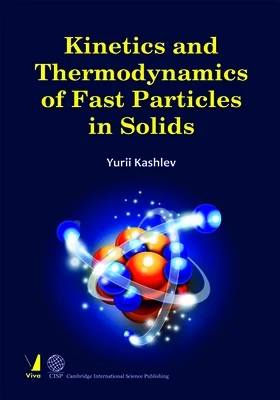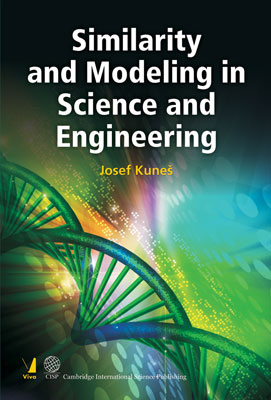
Similarity and Modeling in Science and Engineering
Similarity and Modeling in Science and Engineering
₹1,525.50 ₹1,695.00 Save: ₹169.50 (10%)
Go to cartISBN: 9788130922966
Bind: Hardbound
Year: 2013
Pages: 454
Size: 6 x 9.5 Inch
Publisher: Cambridge International Science Publishing
Published in India by: Viva Books
Exclusive Distributors: Viva Books
Sales Territory: India, Nepal, Pakistan, Bangladesh, Sri Lanka
Description:
The present text sets itself in relief to other titles on the subject in that it addresses the means and methodologies versus a narrow specific-task oriented approach. Concepts and their developments which evolved to meet the changing needs of applications are addressed. This approach provides the reader with a general tool-box to apply to their specific needs. Two important tools are presented: dimensional analysis and the similarity analysis methods. The fundamental point of view, enabling one to sort all models, is that of information flux between a model and an original expressed by the similarity and abstraction Each chapter includes original examples and applications. In this respect, the models can be divided into several groups. The following models are dealt with separately by chapter; mathematical and physical models, physical analogues, deterministic, stochastic, and cybernetic computer models. The mathematical models are divided into asymptotic and phenomenological models. The phenomenological models, which can also be called experimental, are usually the result of an experiment on an complex object or process. The variable dimensionless quantities contain information about the real state of boundary conditions, parameter (non-linearity) changes, and other factors. With satisfactory measurement accuracy and experimental strategy, such models are highly credible and can be used, for example in control systems.
In this book:
• Methodology of Modeling
• Dimensional Analysis
• Methods of Similarity Analysis
• Mathematical Models
• Physical Models
• Physical Analogues
• Deterministic Computer Models
• Stochastic Computer Models
• Cybernetic Models
Contents:
Introduction • Methodology of Modeling
Identification, Modeling and Simulation • Identification and Simulation • Cybernetics and Modeling • Physical Similarity and Modeling • Overview of the Information Theory of Modeling • Historical Development of Modeling • Classification and Properties of Models • Creation, Development and Transformation of a Model • Various Categorizations of Models • Sorting Models According to Degree of Abstraction • Model Simplification and Credibility • Tasks and Algorithmization of Solutions
Dimensional Analysis
Quantities, Dimensional Matrix and Similarity Criteria • Quantities and Units • Fundamental Theorems of Dimensional Analysis • Dimensional Matrix • Similarity Criteria • Determination of Number and Form of Similarity Criteria • Pi theorem • Matrix Solution of Similarity Criteria • Sets of Similarity Criteria • Examples • Conversion of Units and Quantities • Conversion of Units • Conversion of Quantities • Examples • Determination of Functional Relations • Functional Relation and Criterion Equation • Common Procedure • Improved Procedures • Examples • Applications • Thermomechanics of Solid Bodies • Thermomechanics of Fluids • Electricity and Magnetism • Mechanical Engineering ?
Methods of Similarity Analysis
Physical Phenomenological Model Analysis • Phenomenological Expression of Forces and Energies • Physical Significance of Similarity Criteria • Examples • Mathematical Model Analysis • Procedure Utilizing Scale Similarity Indicators • Procedure Utilizing Reference Quantities • Procedure Utilizing Integral Analogues • Example • Applications • Thermomechanics of Solid Bodies • Thermomechanics of Fluids • Electricity and Magnetism • Physical Chemistry • Rheology and Tribology • Technology • Ecology and Medicine
Mathematical Models
Characterization of Mathematical Models • Asymptotic Mathematical Models • Equations of Mathematical Physics • Conditions of Unambiguity • Mathematical Model Transformations • Methods of Tasks Solution • Phenomenological Mathematical Models • Phenomenological Model Formation and Evaluation • Applications • Electrical Engineering • Physical Technology • Mechanical Engineering ?
Physical Models
Characterization of Physical Models • Physical Modeling Procedure • Similarity Theorems • Similarity Criteria Transformations • Scales Determination in Physical Modeling • Example • Applications • Mechanics of Solid Bodies • Thermomechanics of Fluids • Mechanical Engineering ?
Physical Analogues
Characterization of Physical Analogues • Various Physical Analogies • Electrical Analogues of Physical Circuits and Systems • Analogues of Static Circuits and Systems • Analogues of Dynamic Circuits • Electrical Analogues of Physical Fields • Analogues of Steady Fields • Analogues of Unsteady Fields • Analogues of Basic Boundary Conditions • Analogues of Coupled Fields • Analogues of Wave-Diffusion Fields • Direct Modeling Method for Gradient Fields • Applications • Mechanics of Solid Bodies • Mechanics of Fluids • Thermomechanics ?
Deterministic Computer Models
Characterization of Deterministic Models • Numerical Deterministic Models • Matrix Operational Model • Models Based on the Finite Difference Method Principle • Models Based on the Finite Element Method Principle • Models Based on the Finite Volume Method Principle • Models Based on the Boundary Element Method Principle • Hybrid Deterministic Models and Systems • Applications • Mechanics of Solid Bodies • Thermomechanics • Physical Technology • Mechanical Engineering • Industrial medicine
Stochastic Computer Models
Characterization of Stochastic Models • Outline of General Theory • Mathematical Stochastic Model • Transition Probabilities of Internal Nodes • Transition Probabilities of Boundary Nodes • Numerical and Hybrid Stochastic Models • Models Based on the Probability Method Principle • Models Based on the Exodus Method Principle • Models Based on the Monte Carlo Method Principle • Stochastic Computers and Models • Stochastic Coding and Operations • Properties of Stochastic Computers and Models • Applications • Thermomechanics
Cybernetic Models
Black-box-type Models • Simultaneous Models • Structure and Properties • Neuron-web-type Models • Neural Networks • Neuron Models and Their Properties • Applications
Appendix
Physical Quantities and Constants • Mechanical and Acoustic Quantities • Thermal and Optical Quantities • Electrical and Magnetic Quantities • Subscripts • References • Index
About the Author:
Josef Kunes holds an M.Sc and Ph.D. in study of nuclear technique from Technical University, Plazen. He is also a post-graduate in study of experimental methods in mechanics from Technical University Dresden. He was awarded Grade I Scientific Qualification by the Presidium of the Czech. Ac. Sci. He also earned the Doctor of Technical Sciences degrees for the branch of Thermomechanics. Kunes has been a professor at Technical University, Prague.

